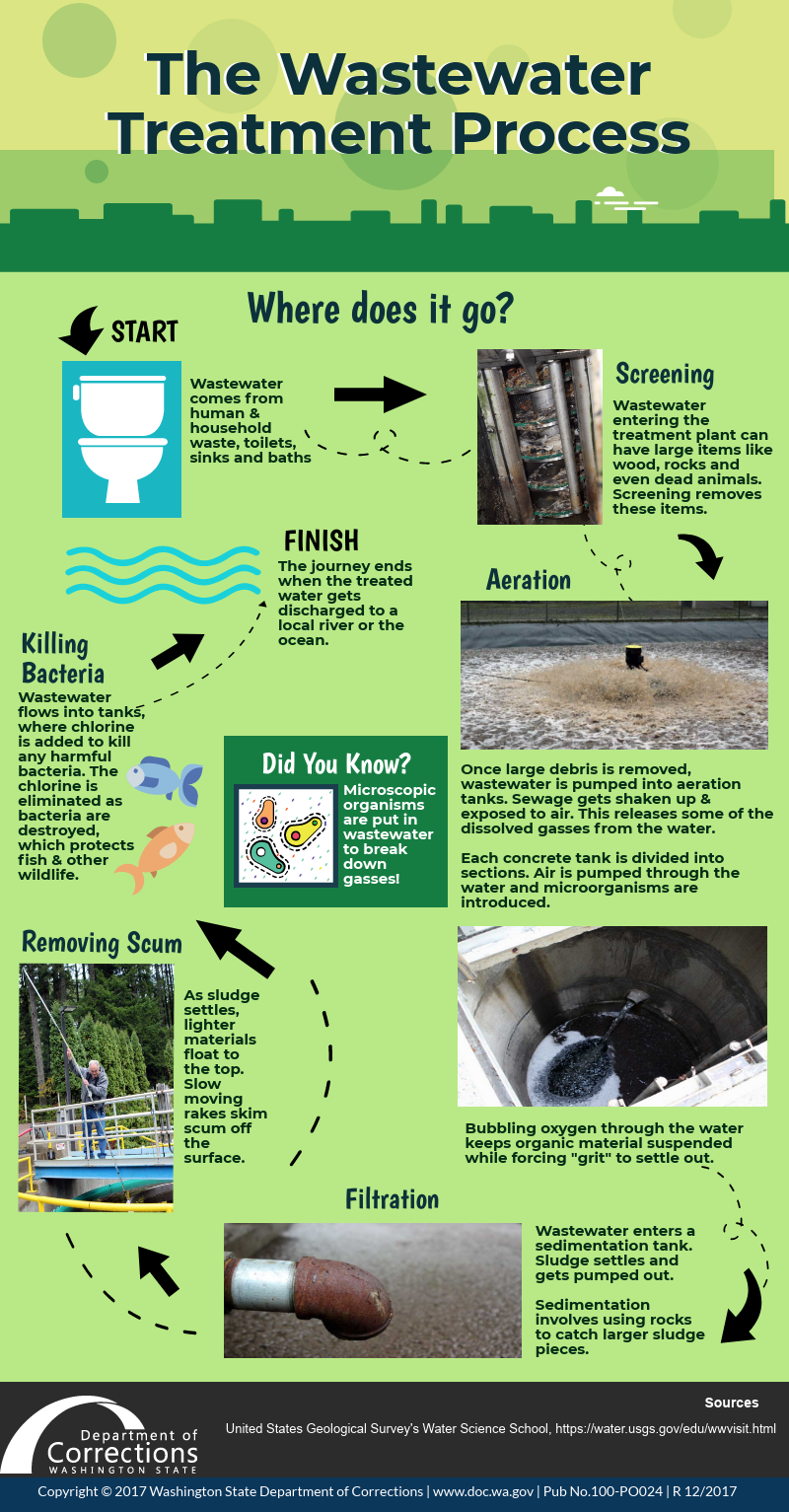INFOGRAPHIC: The Wastewater Treatment Process
100-PO024 (R 12/2017)

(Rachel Friederich (email), DOC Communications)
Text Version
Where does it go?
Wastewater treatment has many steps.
Start
Wastewater comes from human and household waste, toilets, sinks and baths.
Screening
Wastewater entering the treatment plant can have large items like wood, rocks and even dead animals. Screening removes these items.
Aeration
Once large debris is removed, wastewater is pumped into aeration tanks. Sewage is shaken up and exposed to air. This releases some of the dissolved gasses from the water. Each concrete tank is divided into sections. Air is pumped through the water and microorganisms are introduced.
Did you know?
Microscopic organisms are put in wastewater to break down gasses.
Filtration
Wastewater enters a sedimentation tank. Sludge settles and gets pumped out. Sedimentation involves using rocks to catch larger sludge pieces.
Removing Scum
As sludge settles, lighter materials float to the top. Slow moving rakes skim scum off the surface.
Killing Bacteria
Wastewater flows into tanks where chlorine is added to kill any harmful bacteria. The chlorine is eliminated as bacteria are destroyed, which protects fish and other wildlife.
Finish
The journey ends when the treated water gets discharged to a local river or the ocean.
